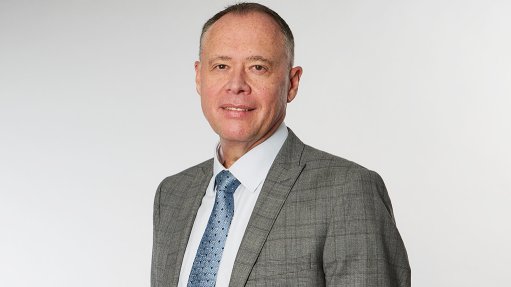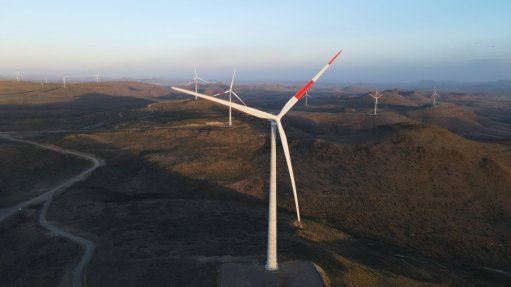Water summit concludes with multistakeholder resolutions to tackle issues
While the Department of Water and Sanitation (DWS) is offering comprehensive and collaborative support for underperforming water services authorities (WSAs), mayors and municipalities, Water and Sanitation Minister Senzo Mchunu has warned of a hardline approach for non-conforming entities.
This followed the conclusion of a two-day WSA Summit, where clear resolutions and action plans have emerged to address the findings and outcomes of the Blue and No Drop reports and Green Drop Progress Assessment report.
The recent Blue and No Drop reports revealed a decline in drinking water quality and an increase in nonrevenue water (NRW) since the last reports were issued in 2014, while the Green Drop Progress Assessment report indicated an increased risk in the performance of municipal wastewater treatment systems.
Mchunu said that frank and robust discussions, focused on finding collaborative and innovative ways to improve critical, poor and average-performing WSAs, and on how to maintain the good standards of good-performing ones, took place among the DWS, several WSA officials, water board heads, the South African Local Government Association (Salga) and the Department of Cooperative Governance and Traditional Affairs (Cogta).
The summit focused mostly on the quality of water, however, issues close to that, including infrastructure, supply and availability, and the management of water and skills, were discussed, and the DWS will be working with Cogta, Salga, the water boards and the private sector to ensure that municipalities deliver on their mandates
“It is all about change. The summit itself was called to change the narrative that we have had so far in South Africa about how we perform in terms of quality of water that we supply.”
He pointed to a need for the separation of the WSA from water service provision, in accordance with the regulations and legal frameworks, and the DWS is directing municipalities that do not already have separate water service providers to appoint alternative providers of water “immediately”.
“We are saying to them, please go and consider immediately appointing, through legal mechanisms, an alternative provider,” Mchunu said, noting that the water provider would be subjected to assessments in terms of competencies that would be outlined, which DWS would be involved in.
“The municipality will remain in authority and will be expected to perform all their duties in accordance with a WSA and in accordance with legislation, but the provision will then allow themselves to be serviced by somebody else. And we expect that to be done as soon as possible,” he said.
Further, to mitigate South Africa’s unacceptably high NRW, which must be addressed simultaneously, Mchunu said that DWS director-general Dr Sean Phillips would establish a multi-stakeholder technical team, at the national level, with all the key stakeholders to deal with this in collaboration with municipalities that battle most with NRW.
“It is a matter we have been dealing with for a long time, acknowledging that NRW in South Africa is unacceptably high, especially given the fact that this is already treated water and is treated at a lot of expense. This summit took a decision. Now we must act and bring this to an end.
“To this effect, we want also to invite the private sector to come in and play a role.”
In addition, there are a number of other things that the DWS and its partners resolved on, including specifics in terms of what size of a treatment plant must be run by a person with what qualifications and the filling of posts by a competent person.
“There is a lot of emphasis on performance,” Mchunu said.
“We have not interfered with any of the powers of local government, nor any of the powers of municipalities as WSAs. We are enhancing. We are empowering. We are wanting them to perform, but we are also adding some pressure. I must emphasise that we are going to be putting pressure,” he warned.
“In our resolutions were built-in consequences.”
Should they not perform, one option for the DWS, in collaboration with the financial departments and local government, is a review of what steps to take, including whether the water and sanitation grants should continue or should be channelled elsewhere.
“The name of the game here is service, improved service. We are certainly not going to freely give [intergovernmental] grants repeatedly without any conditions. We think that it will be irresponsible of us just to continue [without] any change in terms of improvement to a WSA,” he concluded.
Article Enquiry
Email Article
Save Article
Feedback
To advertise email advertising@creamermedia.co.za or click here
Press Office
Announcements
What's On
Subscribe to improve your user experience...
Option 1 (equivalent of R125 a month):
Receive a weekly copy of Creamer Media's Engineering News & Mining Weekly magazine
(print copy for those in South Africa and e-magazine for those outside of South Africa)
Receive daily email newsletters
Access to full search results
Access archive of magazine back copies
Access to Projects in Progress
Access to ONE Research Report of your choice in PDF format
Option 2 (equivalent of R375 a month):
All benefits from Option 1
PLUS
Access to Creamer Media's Research Channel Africa for ALL Research Reports, in PDF format, on various industrial and mining sectors
including Electricity; Water; Energy Transition; Hydrogen; Roads, Rail and Ports; Coal; Gold; Platinum; Battery Metals; etc.
Already a subscriber?
Forgotten your password?
Receive weekly copy of Creamer Media's Engineering News & Mining Weekly magazine (print copy for those in South Africa and e-magazine for those outside of South Africa)
➕
Recieve daily email newsletters
➕
Access to full search results
➕
Access archive of magazine back copies
➕
Access to Projects in Progress
➕
Access to ONE Research Report of your choice in PDF format
RESEARCH CHANNEL AFRICA
R4500 (equivalent of R375 a month)
SUBSCRIBEAll benefits from Option 1
➕
Access to Creamer Media's Research Channel Africa for ALL Research Reports on various industrial and mining sectors, in PDF format, including on:
Electricity
➕
Water
➕
Energy Transition
➕
Hydrogen
➕
Roads, Rail and Ports
➕
Coal
➕
Gold
➕
Platinum
➕
Battery Metals
➕
etc.
Receive all benefits from Option 1 or Option 2 delivered to numerous people at your company
➕
Multiple User names and Passwords for simultaneous log-ins
➕
Intranet integration access to all in your organisation


















